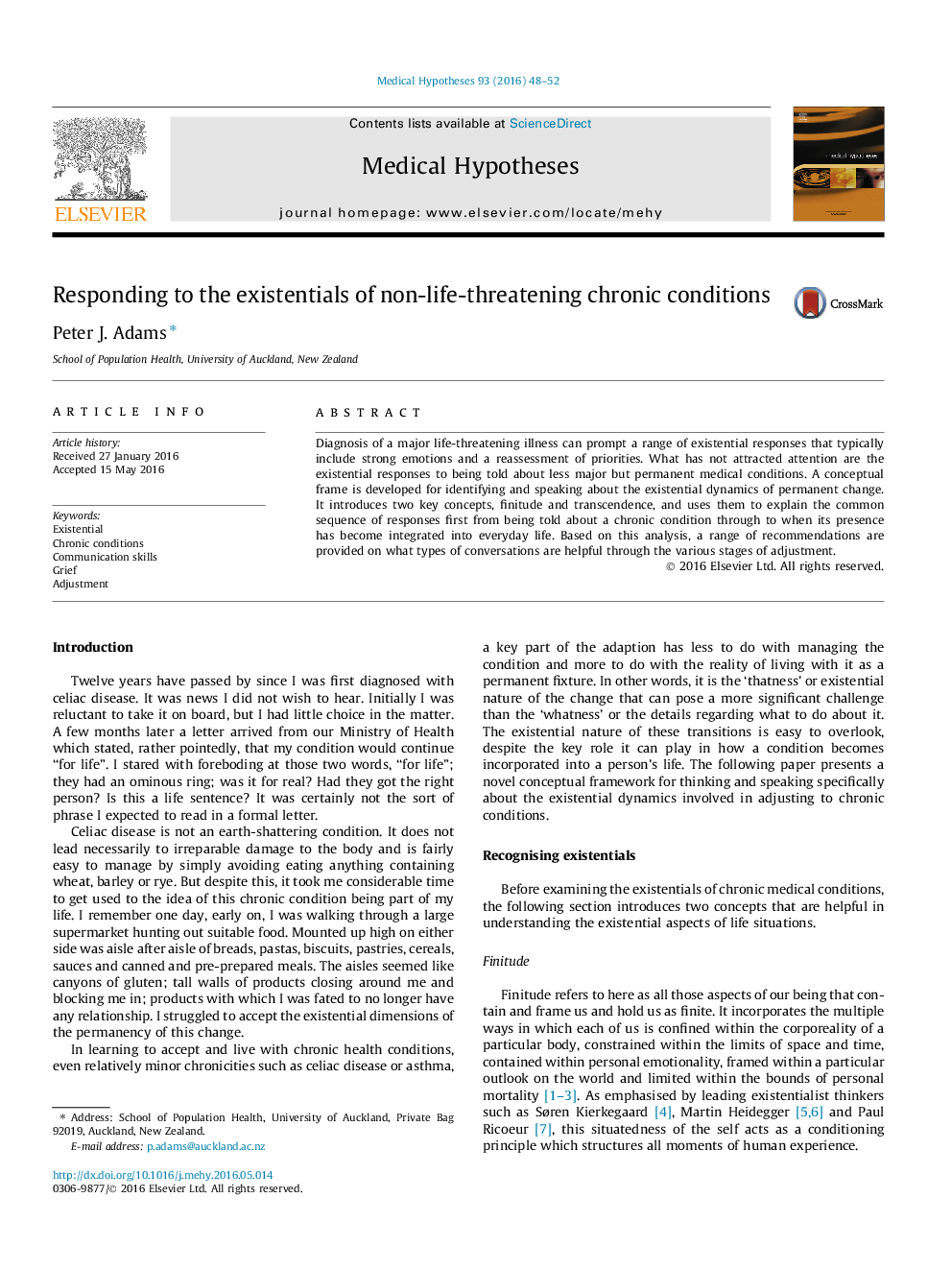| Article ID | Journal | Published Year | Pages | File Type |
|---|---|---|---|---|
| 5810430 | Medical Hypotheses | 2016 | 5 Pages |
Diagnosis of a major life-threatening illness can prompt a range of existential responses that typically include strong emotions and a reassessment of priorities. What has not attracted attention are the existential responses to being told about less major but permanent medical conditions. A conceptual frame is developed for identifying and speaking about the existential dynamics of permanent change. It introduces two key concepts, finitude and transcendence, and uses them to explain the common sequence of responses first from being told about a chronic condition through to when its presence has become integrated into everyday life. Based on this analysis, a range of recommendations are provided on what types of conversations are helpful through the various stages of adjustment.
